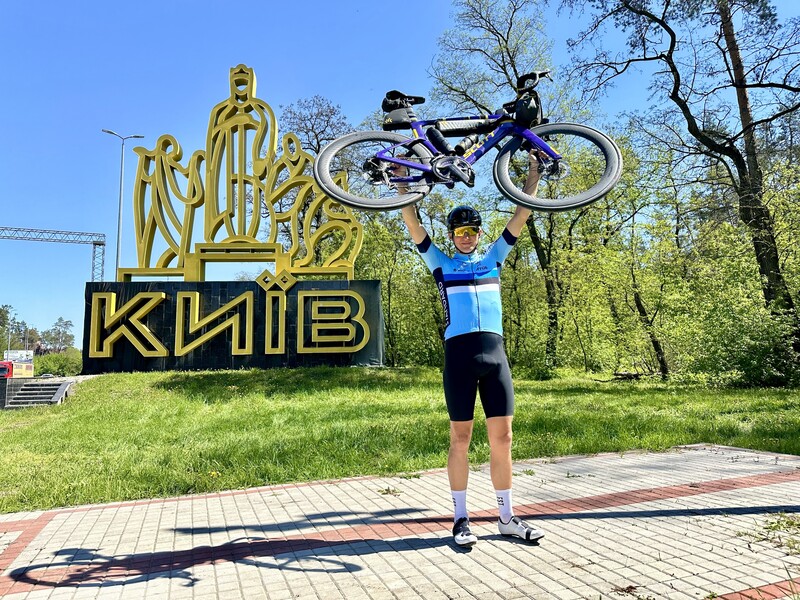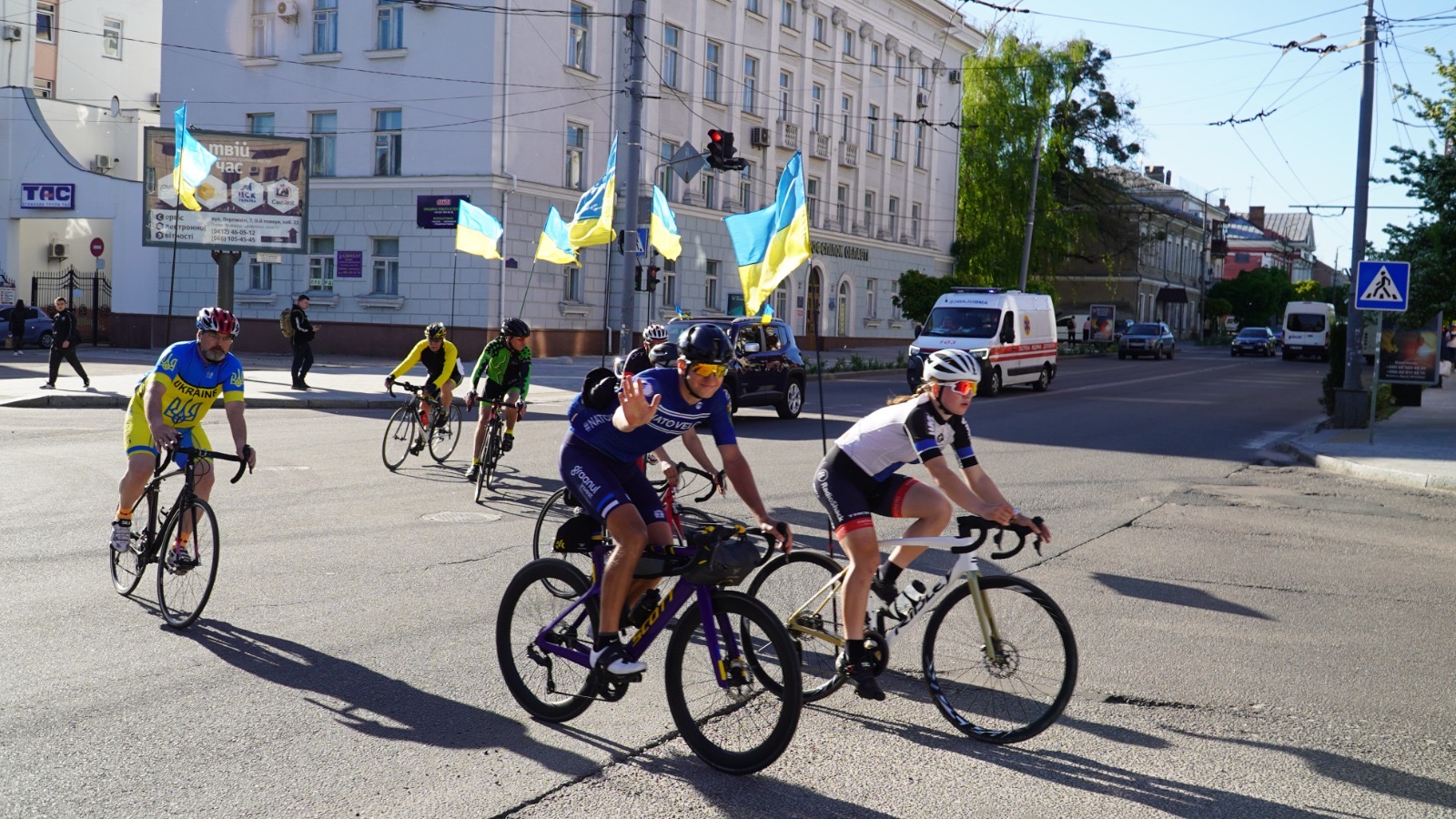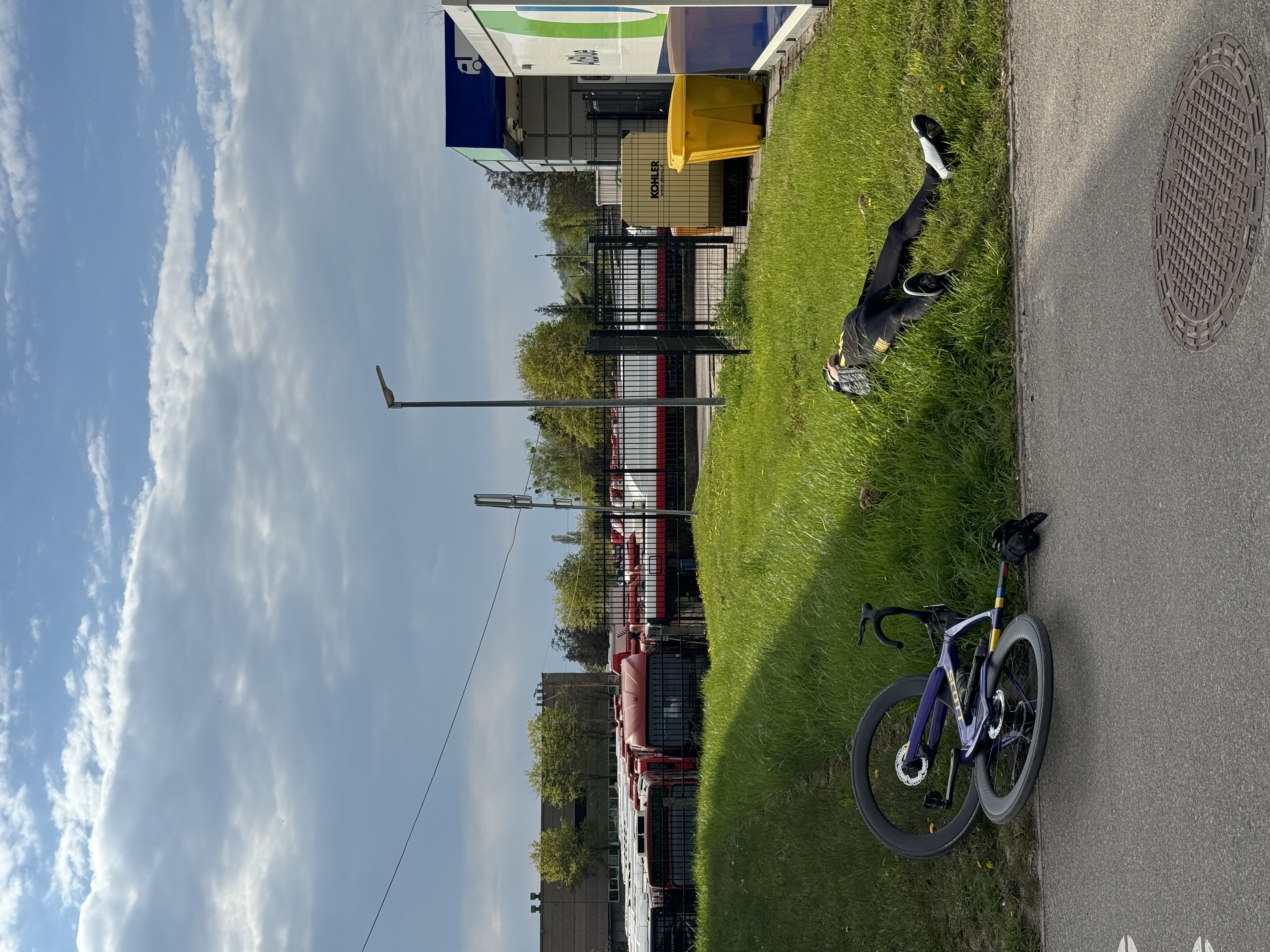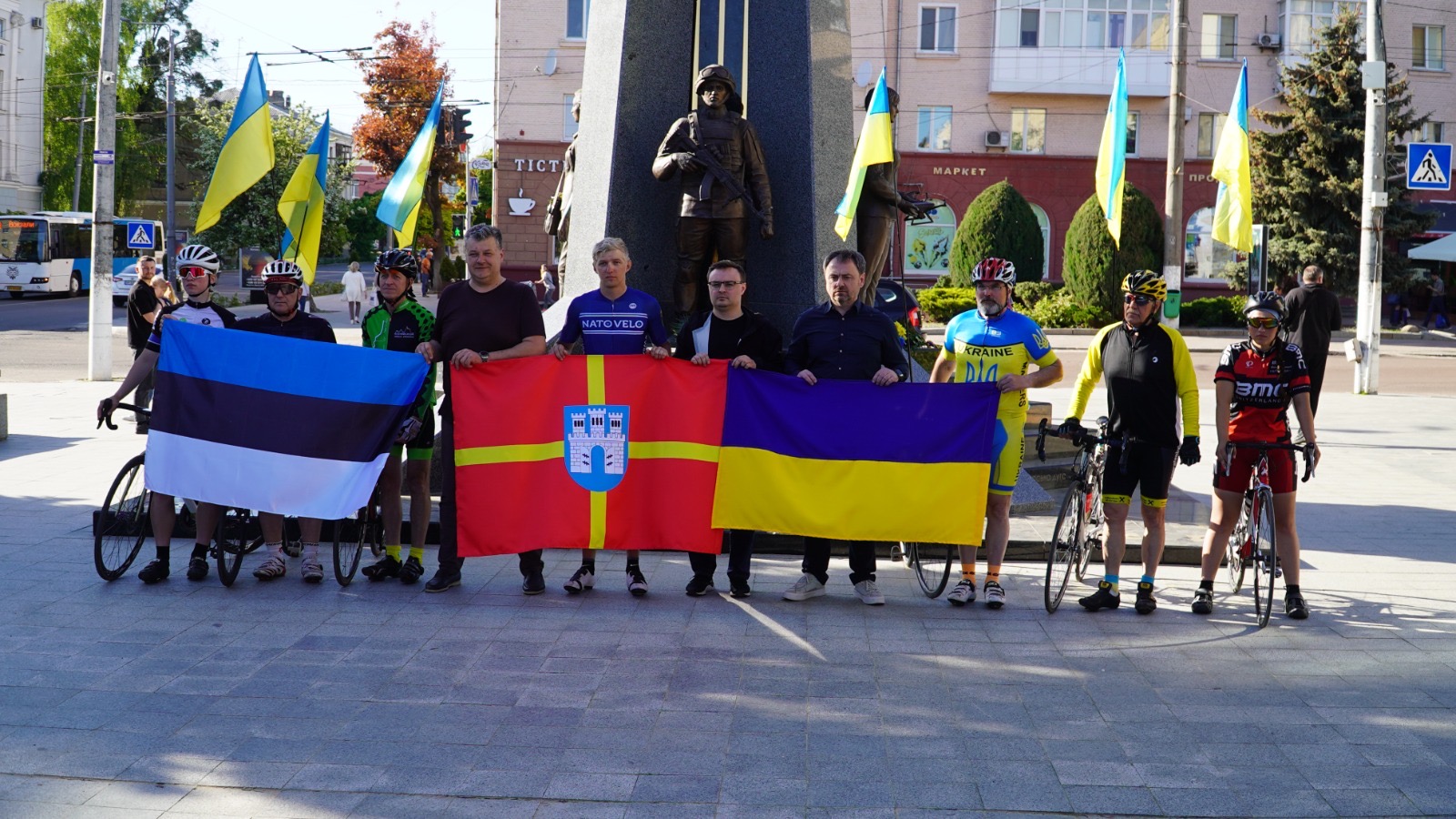– What was the idea behind your race, and how was your trip technically organized?
– My idea was to do fundraising from Tallinn to Kyiv and to get support and focus on helping Ukraine. This needs extraordinary things to do. So, I had to do something that would draw attention. And riding a bike would definitely draw attention. Technically, it was quite simple. I took my bike from Tallinn and started riding. It took seven days, approximately 1700 km. So more than 250 km a day I ride my bike. I did it halfway solo, so it meant I had some bags on my bike with spare clothing, some extra food and so on. But, yes, this was the overall picture of my journey.
– So all your belongings were in some car moving with you?
– I only had a car following me for the first two days, but after that, all of my belongings were with me. My shoes were in my back pocket, my other clothes were in bags attached to my bike. So, everything I had, I had it on with me all the time. So I tried to show that I do this solo, without support, because Ukraine is also doing so much in defending democracy, actually, a lot solo also. Because there is support, but not always, some countries are still hesitant to give support. So I wanted to do it like Ukraine does – the brave way, the best way.
– How many overnight stops did you make during this trip and where, in which cities and countries?
– I did it in seven days, so I had six nights. The first was in Riga, the second was in southern Lithuania, the third was in Poland, and the fourth was in Helm, Poland. The fifth was in Rivne, Ukraine. The sixth night was in Zhytomyr, Ukraine. Then I came to Kyiv, I arrived there yesterday [May 2], and I'm staying here until Saturday evening.
– How did it look when you just came to the reception in some hotel with your bike and maybe a little bit with not very clean clothes? How was it?
– Yeah, it was, especially at the hotel reception always like... [they asked] where am I going or what am I doing? And I told them, and they were very, very surprised. And then, the first thing I did was wash my clothes in the sink, the cycling clothes, and then have a big meal. So it was definitely a bit out of the ordinary for the hotels also.
– Did they support you? What did they say in Poland and the Baltic countries?
– Yes, everybody I talked to in Baltic countries and in Poland they, of course, supported me, and they said that, oh, we need to help Ukraine more. And all of the bigger countries in Europe should help Ukraine more. All of the people I met were very supportive of Ukraine, supportive of my goals, and were very grateful that I did this.
– And you raised about €30,000?
– Yes. The goal is 50,000. More than 30,000 have already been raised. I hope to get the final part also raised in the next few days.
I hope it will happen. The aim is to get more trucks and drones for the Ukrainian army, for the 73rd Brigade, and also for the Special Forces. So that they can be more effective on the frontline and kick back terrorist Russia.
– Which people gave you money? How was it organised?
– I don't know who gave me the money. These are anonymous donors. I know they are all across the world. Some are from Estonia, but I know people from the UK, and America, from Germany. That donated to my cause. But I don't know all of them personally. I think there are more, like, 200-plus people who have donated to my cause. I'm very grateful to all of them. And this is very much needed for Ukraine right now.
– I know that you are a professional athlete. You're a professional cyclist. How did it happen to you that you became a politician? Did you want to change something in your country?
– I was a professional cyclist before I came into politics. But then I thought when I was a cyclist that I wanted to do something more meaningful with my working years and leave some legacy. And I thought that by being in politics, I could bring the changes I wanted to see in my country and all of Europe. And that's why I went into politics. I worked in the Defense Ministry before I became a parliament member. And I was here in Ukraine in April 2022. The Kyiv region had just been liberated from Russian troops. And this meant that everything was very fresh. I saw all of the very terrifying things that the Russians did here. From there on, I thought to myself that I now have to do everything I can in my political journey to help Ukraine and bring peace into Europe. This is the reason I'm doing this.
– And what do people in Estonia say about the war in Ukraine now? Has the world tired of war and wants to freeze it anyway, at any cost?
– I think, unfortunately, there are voices in Europe who think that freezing the conflict is a solution. But I can assure you that the Estonians don't think like that. We know that it's an existential question, what will happen in Ukraine? And the only solution is that Ukraine fully beats Russia on the front line and fully pushes back its troops. This is the reasoning behind the Estonian understanding. It is quite surprising, but still, it's more than 90% of Estonians still support giving military support to Ukraine. So this shows that the whole society is very common in helping Ukraine in Estonia. We are not tired, we can't be tired because Ukraine isn't tired. And we will help you as much as we can, ourselves, and also persuade our allies. And we will help you until victory and also beyond.
– What do you think about the Ukrainian fight against corruption? How does it look from the outside?
– I've talked to many Ukrainian officials and politicians and so on, and I see that you have done so much in fighting corruption and changing laws, changing the mentality. You are definitely ready to become a European Union state. I think you do a lot more for democracy and transparency than, actually, a lot of European Union countries do. So I see, that it's not as big of a problem anymore in Ukraine. I see that all of Ukraine takes it very seriously. It is hopefully gone in the next few years completely. And I know you are doing very good stuff on this.
– Thank you for your optimism in this question. You try to do bright things in politics, with this bike race and before. During your campaign, you included Tinder in your activities. You promised voters to make a beach park for dates and to develop a bicycle network in Tallinn. Are you fulfilling these promises?
– Yes, I try to do things with a newer perspective, to think outside the box, and you have to do something extraordinary to get attention. I think this is the way I'm trying to do politics. But, yeah, the Tinder question was in 2017, I was a lot younger. And that was a municipal election. Now, we have just changed government in the Estonian capital, Tallinn. And, I think now we are completing those promises in Tallinn that I promised my voters in 2017.
But, you see, Ukraine also very much understands – to get attention you have to do very good strategic communication. And strategic communication canʼt be boring, if I'm frank and honest. So, thinking outside the box and doing things in a new way will bring you attention, will bring more people to talk about your goals, and hopefully, then, more people will believe in your goals. That is my strategy also.


 -9 Kyiv
-9 Kyiv






